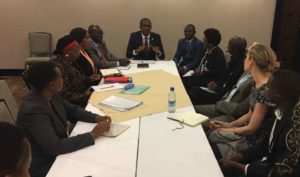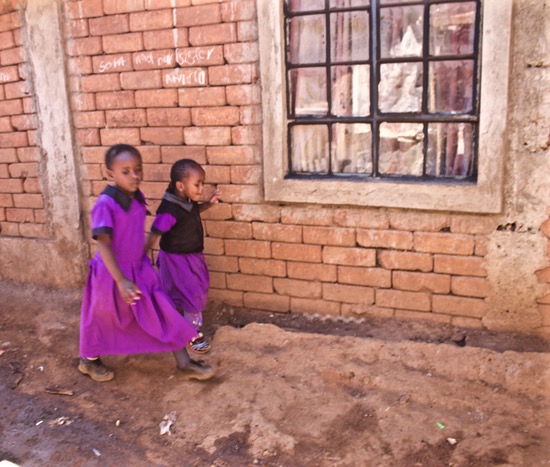News & Blogs
Nationality Rights of the Nubian Child – Namati and Partners Submit a Policy Brief to ACERWC
On March 22, 2011, the African Committee of Experts on the Rights and Welfare of the Child (ACERWC) found Kenya to be in violation of the African Children’s Rights Charter. The case and verdict were based on the discriminatory rules and practices applied to Nubian children that denied them formal recognition of their Kenyan nationality. Without proof of citizenship, children cannot realize their right to education and other basic primary services. They are subjected to social and material exclusion, the effects of which will follow them into and throughout adulthood.
In their verdict, ACERWC advised the state to make a number of changes to the civil registration and identity documentation procedures to end the systemic discriminatory treatment of the Nubian community.
Six years later, on May 4, 2017, ACERWC invited the Kenyan government and civil society to report on the progress of the implementation of the 2011 decision. Namati, Open Society Justice Initiative (OSJI), The Nubian Rights Forum (NRF), and Kenya Nubian Council of Elders participated.

Civil society, government officials, and ACERWC representatives discuss progress on the implementation of changes to discriminatory citizenship practices.
In preparation for the event, Namati, OSJI, and NRF prepared a policy brief using data from the Nubian Rights Forum paralegal database on birth certificate applications and ID card registration. Paralegals rigorously collect data on every case they handle, noting the documents requested, the time taken to get the documents, details about the vetting process, and more. The data clearly demonstrates that a number of practices that the ACERWC had recommended the state abolish are still in use.
The brief further identifies related issues in the proposed Registration of Persons Bill 2014 that need to be addressed, including the proposed denial of basic services to those lacking identity documents and the abolishment of late registration for birth certificates. Our data shows that over 70% of the cases the paralegals have handled to date are applications for late birth registration, due primarily to the prevalence of home births.
Although no commitments were made during the session, the discussion opened doors to future collaborations between the state, civil society, and the Nubian community.
Read the policy brief here and join the discussion on our community platform.
For stories about people denied their full rights to secure citizenship — and how paralegals have helped — click here.

